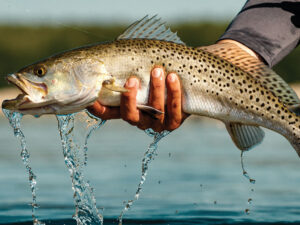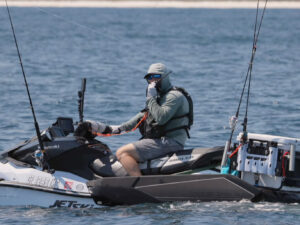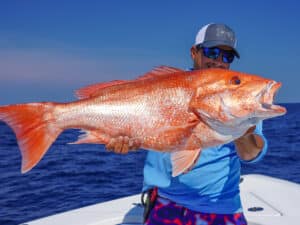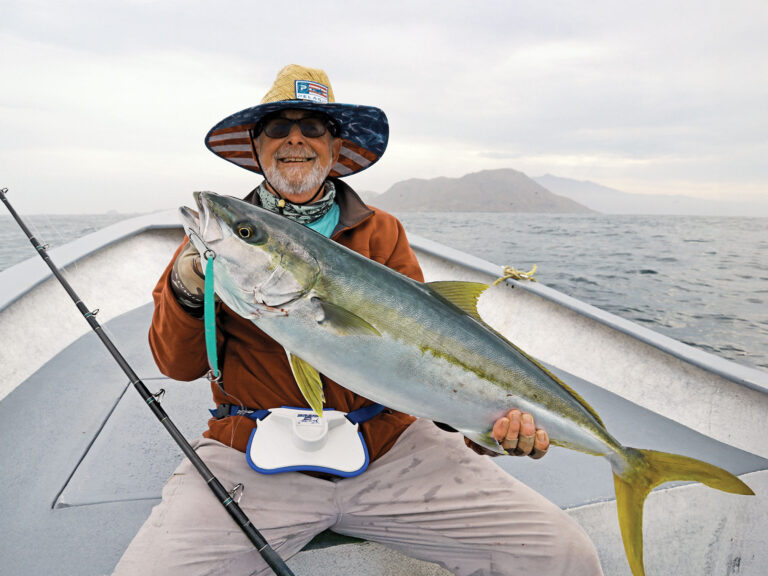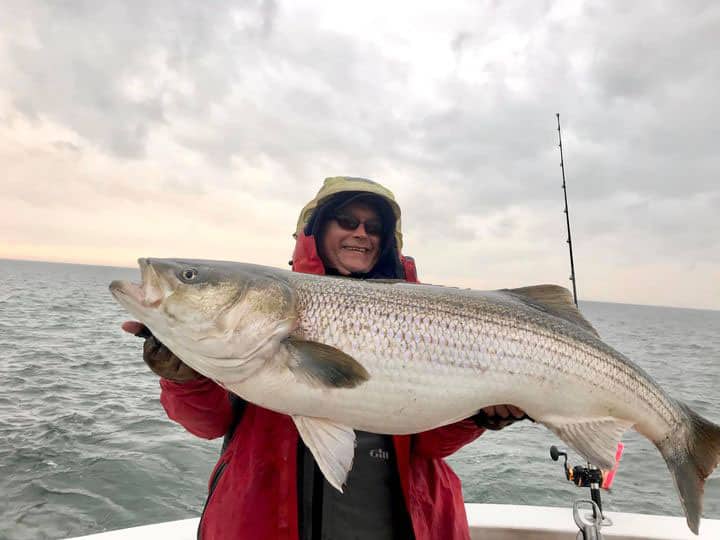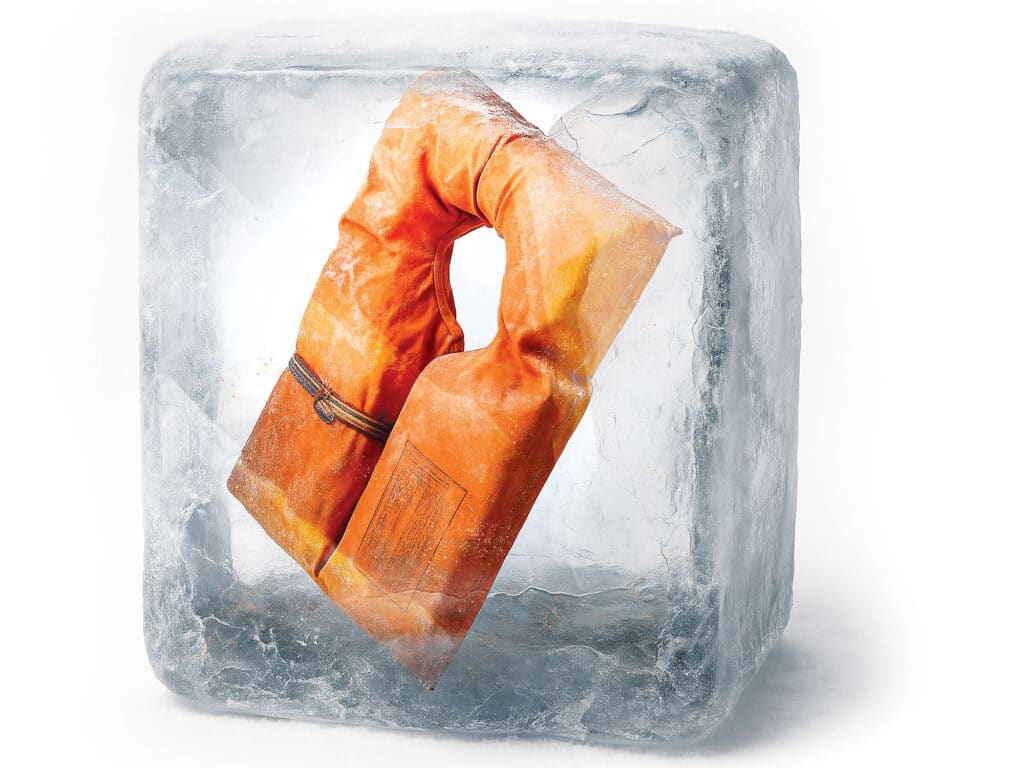
Two things are true of most avid anglers: They don’t let a little thing like cold weather deter them from going fishing, and most don’t wear life jackets while chasing fish. Unfortunately, this combination is a potential recipe for disaster. No one plans to fall out of a boat, but taking certain precautions when water temps drop can save your life.
What Happens When You Fall Overboard?
The first couple of minutes of immersion in cold water are the most critical. If you aren’t wearing a life jacket, you won’t die of hypothermia… because you probably won’t live long enough for that to happen.
When water is below 60 degrees F, most people suffer cold-water shock when immersed, which can last up to a couple of minutes. This sudden plunge causes uncontrollable gasping for air and a rapid spike in heart rate, which can lead to panic or even a heart attack. It’s estimated that 20 percent of those who die after plunging into cold water don’t make it past this first stage. Knowing about this effect and how quickly it passes will help you stay calm and survive to the next phase of cold-water immersion.
The First 10 Minutes Are Critical
When your body is dunked in frigid water, it goes into survival mode and attempts to preserve your core temperature by restricting blood flow to your arms and legs, which is a little ironic because this same reflex drastically reduces your ability to swim. You have about 10 minutes of diminishing functionality to improve your situation, and getting back on board a boat is the number one priority. If your boat doesn’t have a boarding ladder (for shame!), step on the engine’s cavitation plate and hoist yourself up. Without a life jacket or other means to stay afloat, even the best swimmers can’t tread in frigid water for more than 10 minutes, 30 minutes tops.
If you try to swim, the cold water passing over your body rapidly accelerates the loss of body function by eliminating the warmer water trapped in your clothing created by your body heat. Unless the shore is very close, don’t try it.
How Long Does It Take to Become Hypothermic?
Most people think hypothermia happens fast, but it doesn’t typically occur for an hour or longer. This condition happens when your core temperature drops below 95 degrees F. Your actions before that occurs will play a big part in surviving until rescue. If you were unable to reboard your boat or reach shore, your best chance of survival is to assume the H.E.L.P. (Heat Escape Lessening Position), with your knees to your chest, your arms wrapped around your torso and your head above water. This will help conserve heat for core organs such as the lungs and heart.
You will definitely shiver. Shivering is a good thing, serving as critical survival mechanism that generates essential body heat. And that helps stave off hypothermia at least for a while, but not forever.
Best Ways to Prevent Becoming a Statistic
Wear a life jacket at all times. While some anglers only wear a life jacket when running in rough seas, most take them off when they start fishing. That might be OK when it’s summer, but wearing a life jacket at all times when fishing in cold water should be the norm. Don’t let the air temperature fool you. Outside temps could be 75 degrees F, but if the water is as a low as 50 degrees F, it’s dangerous.
Know What to Expect
While you might know what happens during cold-water immersion, it’s a good idea to get in a state of preparedness. If your situational awareness is keen, taking steps like covering your mouth with your hand if you find yourself falling overboard could prevent you from inhaling salt water when gasping initially. Brief everyone on the effects of falling overboard and insist they wear life jackets.
Avoid Fishing Alone
I love fishing alone; it’s like meditating and a great way to recharge your mental batteries. But the risk goes up when fishing in cold water because there’s no one to render aid and help you get back aboard. Certain activities are hazardous for solo anglers, like trolling or fishing while anchored in a heavy current, because if you fall overboard, you’ll never be able to get back on your boat. Avoid activities that take you over the edge of the boat, like throwing a cast net from the forward deck or reaching far out to gaff or net a fish. Cold weather makes you more prone to answer the call of nature, and, according to US Coast Guard sources I talked to, some drowning victims in cold water had their zippers down. It’s better to employ an empty Gatorade bottle or bucket and dump it rather than lean over the side. Consider fishing in shallow areas, so you can stand up if you fall overboard. Often in cold water, fish migrate from deep water to the shallows, which warm up during the middle of the day if the bottom is muddy and dark and the water is murky. The warmer the water, the better for you.
Read Next: Four Fisheries to Target Big Game This Winter
Dress Appropriately
Wear layers, starting with a first layer of material that wicks away moisture. The next layer should be wool or polyester, which has crinkly fibers that trap body heat and can help you stay warm even when the material is soaking wet. The outer layer should be a windproof shell. Avoid wearing cotton, like denim jeans or regular T-shirts, which have straight fibers that don’t trap heat and will stay sodden. A woolen or polyester stocking cap prevents heat loss up top.
Things to Bring Along
A personal locator beacon (PLB) is an affordable, portable, waterproof device you can keep in a pocket that can summon help quickly with the press of a button.
A dry change of clothes is valuable if you have a long run back to port after an accidental immersion.
Lastly, always leave a float plan with a trusted friend or relative that details where you are going and when you’ll return. Call them at the end of the day when you safely return home.

